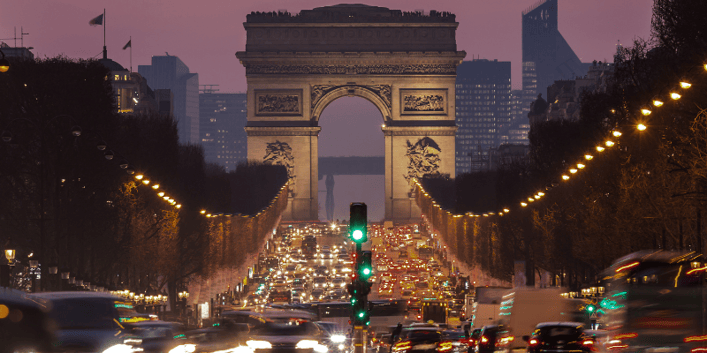

A look behind the scenes: what is our role really?

International Business
In this blog, I explained how the system of international rules works. I explained how the system of international rules works. That system is rather complicated, so the negotiations to change it even more. First of all, the ASCM Convention will remain as it is. We at Atradius DSB or the Ministry of Finance are not involved in that at all. That is the responsibility of a dedicated department of the Ministry of Foreign Affairs..
The Arrangement
The Arrangement negotiations take place in Paris in the OECD offices, but they are explicitly not OECD negotiations. After all: the Arrangement is a gentlemen's agreement between the Participants to that agreement, which is a (slightly) different group than the OECD countries.
To further complicate matters: as it reads here, the Netherlands is not a direct Participant, but the EU, of which the Netherlands is a member state, is. I always explain it this way. The Arrangement is a set of trade rules: restrictions imposed on export support. The EU is an internal market. Therefore, a good that crosses the border with the Netherlands has simultaneously crossed the border with Cyprus, Malta, Ireland and Estonia. After all, there are no internal borders. That makes it necessary to act jointly in negotiating such rules - applies also to the WTO treaties. Since time immemorial - the Treaty of Rome – trade rules have therefore been what is known as an exclusive competence of the European Commission. Long story short: the Commission speaks on behalf of all EU member states in Paris.

Getting started...
And how does the European Commission know what EU member states want? Export credit insurance is actually a niche activity all over the world. In all countries, there are only small teams of people overseeing this complex policy area. Within those small teams, another one and a half men and a horse head are in charge of international negotiations. Since I have been involved, I have met the same people everywhere, so they must be able to oversee a huge spectrum of issues. Even within the Commission, only a limited number of people are working on export credit insurance. In addition, to make it even more challenging, they have no overview of the day-to-day business, because, after all, the Commission is not an export credit insurer itself.
That is why we have regular monthly meetings in Brussels ("Council Working Groups") where Atradius DSB and the Ministry of Finance represent the Netherlands. In these working groups positions are exchanged between member states and the Commission collects member states' wishes and conditions. In that interplay with the Ministry, Atradius DSB, the Netherlands' export credit insurer for ninety years, has enormous institutional knowledge and insight into day-to-day practice and the challenges facing our exporters.
Negotiations and amendments
However, there is an additional layer for negotiating changes to the Arrangement. For this purpose, so-called technical working groups were set up in both Brussels and Paris. The EU attached more importance to reviewing the Arrangement than the other Participants. As there is no supranational body, proposals for changes have to come from the Participants themselves. The EU contributed more or less all the proposals that led to modernization. Those proposals are carefully prepared in the technical working group in Brussels. Again, technical and practical knowledge is of great importance. The Netherlands has also actively co-authored some of the proposals. The interesting thing for us is that EU member state representatives are allowed to speak at the technical working groups in Paris, unlike at the official Participants' Meeting. Nevertheless, we are all reluctant to do so - it quickly becomes confusing and it is not useful to have discussions between EU Member States in the presence of other Participants. We did give a presentation as the Dutch delegation to explain a proposal. The best bits of international work, at least for me.
Although... The best bit of all is that well-trodden cliché that is all too true: the corridors. Because that's where you can do what you want. Walking up to people during the break, having a chat in the queue at the coffee bar, all the way to strategically choosing a really good spot at the table during a joint dinner after a long day of meetings.

Travelling to Paris and Brussels for work always sounds a bit more fun than it is. In your suit in thirty degrees in the Paris metro, going up and down stairs with your luggage and then crammed into a packed metro underground, racing through Paris will never be my hobby. These are long and tiring days where you always have to hope you get back to Gare du Nord just in time to catch your Thalys - by default the last one. But it is also satisfying, especially when you finally get a result.
And we succeeded.


